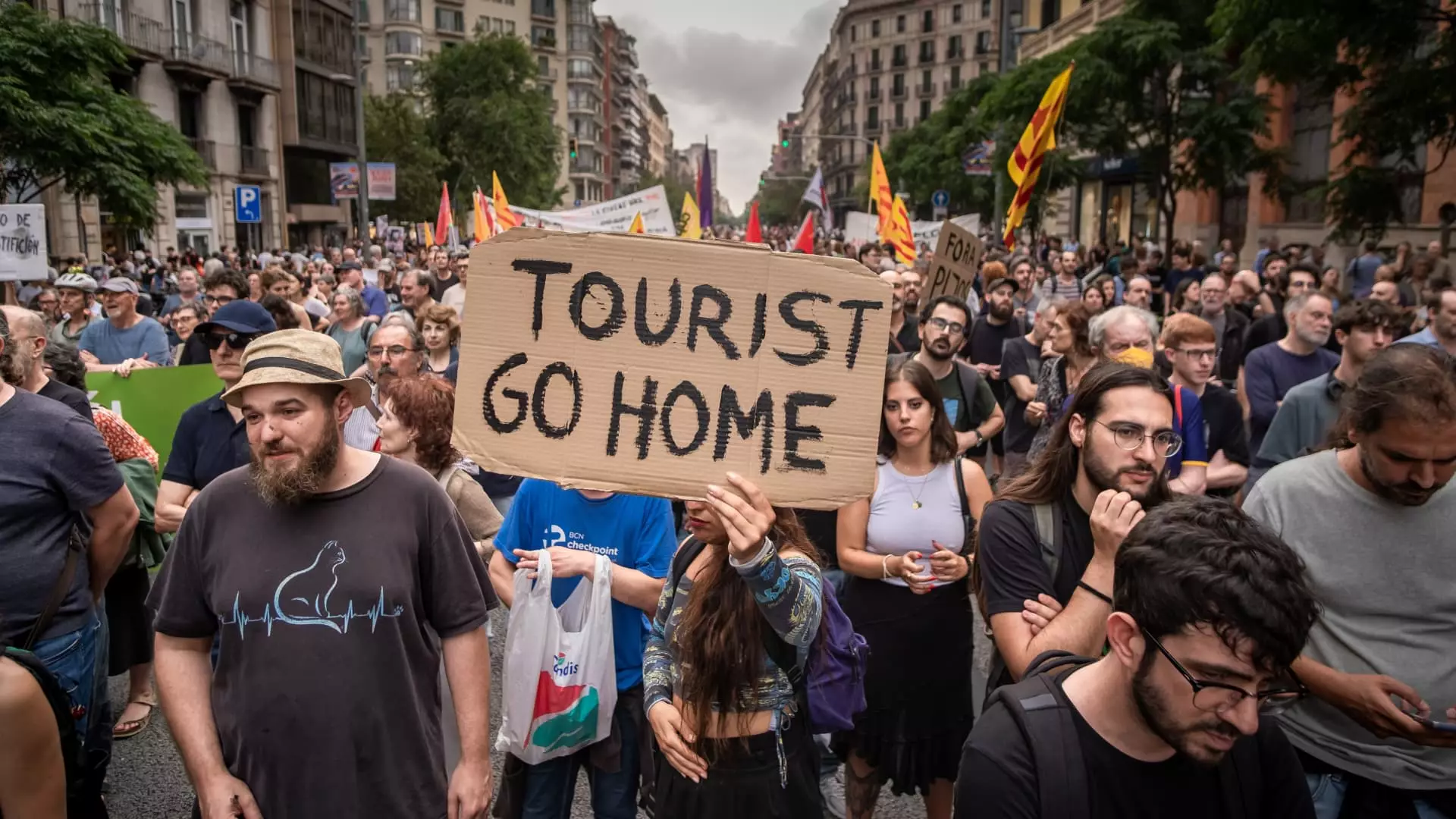The issue of mass tourism and its negative effects on the lives of residents has reached a tipping point in Spain. UNESCO’s Peter Debrine highlighted the urgent need for European officials to address this growing concern, warning that protests may escalate if action is not taken. According to Debrine, civil society plays a crucial role in advocating for change as elected officials are accountable to the needs and wants of their constituents.
An example cited by Debrine is the banning of large cruise ships in Venice, Italy in 2021. The decision came after residents took to the streets to protest the overwhelming presence of cruise ships in the city, particularly in the Grand Canal. While the rerouting of cruise ships has helped preserve the city’s structural and environmental integrity, the influx of thousands of ship passengers into Venice’s narrow streets remains a persistent issue.
The situation in Venice is mirrored in Barcelona, where residents have been grappling with the challenges posed by mass tourism. A survey revealed that the perception of tourism as a benefit to the city has declined while the number of residents viewing it as detrimental has increased. Debrine stressed the importance of rebalancing the interests of locals and travelers, advocating for a shift towards “quality over quantity” tourism. This approach prioritizes high-spending travelers over mass tourists and has gained traction globally, particularly during the Covid-19 pandemic.
In addition to the sheer number of tourists, concerns have been raised about their behavior. Reports of excessive drinking, littering, brawling, and other disruptive activities have fueled discontent among residents. Cities like Amsterdam are exploring policies to address these behavior problems, including crackdowns on certain tourist activities and campaigns urging specific groups to avoid visiting for illicit purposes. In Barcelona, there are calls for policies aimed at promoting “tourism degrowth”, such as higher tourism taxes and limits on cruise ships and short-term housing rentals.
While policymakers are under pressure to implement necessary changes, travelers also have a responsibility to act conscientiously. Debrine emphasized the importance of making informed travel decisions and considering the concept of “mirror cities” as a way to divert tourism from overcrowded destinations to lesser-known areas. By spreading tourist traffic to alternative locations like Tarragona, travelers can help alleviate the strain on heavily impacted cities like Barcelona.
The negative impacts of mass tourism on residents are reaching critical levels in cities across Europe. It is imperative for both policymakers and travelers to collaborate in finding sustainable solutions that prioritize the well-being of local communities while maintaining the appeal of popular tourist destinations. Failure to address these issues may lead to further social unrest and protests, underscoring the urgency of taking decisive action to mitigate the adverse effects of mass tourism.

